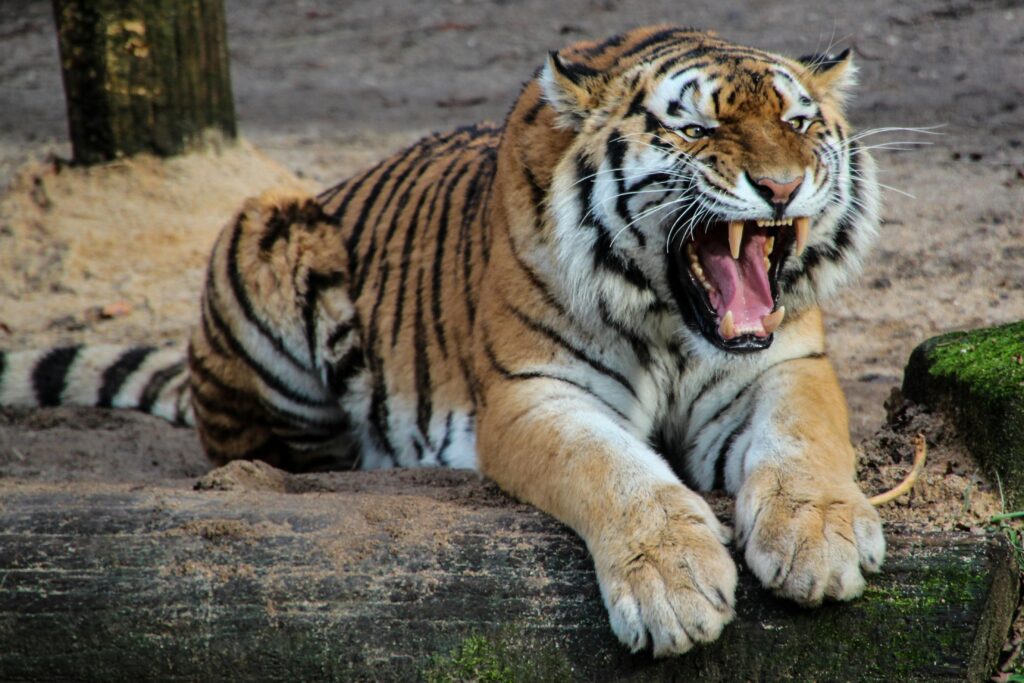A fatal tiger attack at a private Oklahoma wildlife facility has renewed debate about the safety of captive big cat exhibitions and human contact with apex predators.
Ryan Easley, operator of the Growler Pines Tiger Preserve in Hugo, was killed Saturday in what the facility described as “an accident involving a tiger under his care.” The attack occurred during routine interaction with one of the animals, though the preserve has not disclosed further details.
“This tragedy is a painful reminder of both the beauty and unpredictability of the natural world,” Growler Pines said in a Facebook post. “Ryan understood those risks — not out of recklessness but out of love. The animals under his care were not just animals to him, but beings he formed a connection with — one rooted in respect, daily care, and love.”
The preserve remembered Easley as “a passionate advocate for wildlife conservation,” whose “courage, compassion and unwavering commitment to wildlife will never be forgotten.” Following the incident, the facility announced it would cancel all tours and encounters “until further notice.”
Growler Pines is a private refuge that allows visitors to book guided tours, meet tigers, and observe demonstrations of training methods. Easley was known for showcasing the animals at events and presentations intended to highlight their strength and behavior. His death has cast a spotlight on a practice that continues to generate both fascination and criticism.
Animal welfare groups, including People for the Ethical Treatment of Animals (PETA), responded swiftly to the news. “It’s never safe for humans to interact directly with apex predators,” PETA said in a statement. The group reiterated long-standing calls for the end of public exhibitions involving big cats and urged owners to relinquish animals to sanctuaries. “We are calling for wild animal exhibitors to get out of the business now and send the animals to accredited sanctuaries where they can finally live in peace,” the statement said.
The fatal mauling comes amid heightened public awareness of issues surrounding private tiger ownership and exhibition. Popularized by Netflix’s Tiger King docuseries, Oklahoma has been home to several controversial big cat operations, most famously that of Joseph Maldonado, known as Joe Exotic, who is now serving a 21-year prison sentence for animal abuse and a failed murder-for-hire plot.
Experts say Easley’s death is another example of the risks that come with keeping large carnivores in captivity, no matter how long they have been handled or trained. “Even if an animal has been with a trainer since it was a cub, it still retains wild instincts,” said Carney Anne Nasser, a wildlife attorney who has studied exotic animal laws. “Those instincts can emerge suddenly and tragically.”
Incidents like Saturday’s highlight gaps in regulation. While federal oversight exists through the U.S. Department of Agriculture, enforcement varies, and many states allow private ownership of tigers with relatively few restrictions. Oklahoma, where several roadside zoos and private preserves operate, has faced repeated scrutiny for its permissive rules.
Supporters of preserves like Growler Pines argue that such facilities can raise awareness of conservation challenges facing tigers in the wild, where the animals remain endangered. Easley himself was described by friends and colleagues as someone who genuinely cared for the well-being of the animals in his charge. But critics contend that commercial encounters and training demonstrations put both people and animals at unnecessary risk.
Saturday’s tragedy brings the underlying question into sharper focus: Does the appeal of close encounters with wild animals justify the safety risks and ethical challenges, or should such practices be reconsidered? As Growler Pines closes its gates in mourning, Easley’s commitment to the animals remains central to this debate, even as his death amplifies calls for reform.


